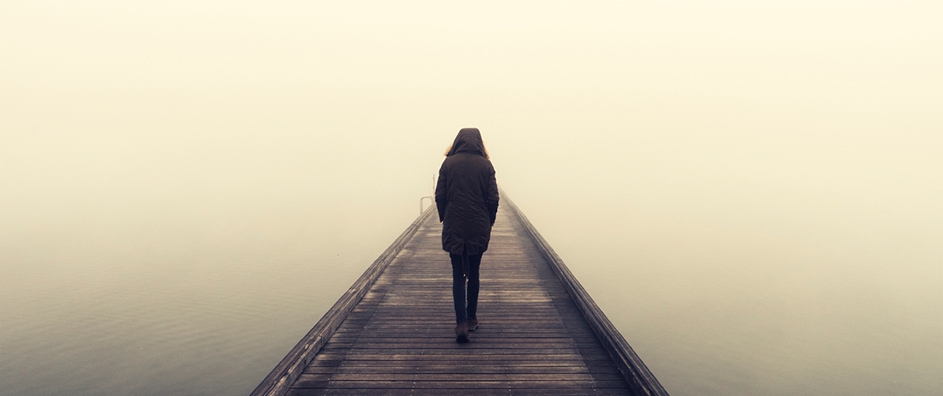The views expressed in our content reflect individual perspectives and do not represent the authoritative views of the Baha'i Faith.
Do not let the desires of the self find a place within you; for it is certain that when you reach the highest station of spirituality one worldly desire can cause your downfall. The spirit is like a bird; when it flies in the air it is always mounting. But the self is like the hunter who is thinking all the time how to catch the bird. As when a bird is in the air the hunter aims at it and brings it down, so is it with the human desires in the soul. You will see that by one arrow, one shot, it will be brought low. This arrow is the connection with this world, the occupations of this world, the desires of this world, the honours of this world.
In many ways the hunter will stop the spirit from ascending. That is why you must ask and implore and entreat: “O God, protect me from myself!” – Abdu’l-Baha, Star of the West, Volume 5, p. 68.
Abdu’l-Baha’s metaphor of the hunter of the self and the bird of the spirit reveals much about our inner lives. We each have these two forces within us—a soul that wants to soar; and our desire for the material world that can bring it low.
So how can we stop the self from shooting down the spirit?
Surely you’ve heard the old saying: “I’m my own worst enemy!” The ancient Greek philosophers called this kind of self-defeating behavior akrasia, which means acting against your better judgment or lacking self-control.
Contemporary neurologists relate akrasia to two regions of the human brain: the limbic system and the prefrontal cortex. The limbic system—the older, more reptilian and more compulsive section of the brain—tends to focus on the immediate rewards of the present. The prefrontal cortex—the logical, higher-order reasoning center of the brain—tends to regulate impulse control, and to focus more on bigger, future-oriented, longer-term goals. That long-term planning portion of the brain often loses out to the immediate gratification of the limbic system; in the same way the human spirit tries to soar while the preoccupations of the material world bring it back down.
Every legitimate religious tradition asks us to renounce the immediate gratification of the material world for the eternal rewards of the spiritual realm:
Let go of the past, let go of the future, let go of the present, and cross over to the farther shore of existence. With mind wholly liberated, you shall come no more to birth and death. – Gautama Buddha, the Dhammapada, Verse 348.
The person whose mind is always free from attachment, who has subdued the mind and senses, and who is free from desires, attains the supreme perfection of freedom from Karma through renunciation. – Krishna, the Bhagavad Gita.
And He was saying to them all, “If anyone wishes to come after Me, he must deny himself, and take up his cross daily and follow Me. – Luke 9:23.
How seek the way which leadeth to our wishes? By renouncing our wishes. The crown of excellence is renunciation. – Hafez
Renunciation is not getting rid of the things of the world, but accepting that they pass away. – Aitken Roshi
Renunciation is the central sun, round which devotion, knowledge and the rest revolve like planets. – Mahatma Gandhi
Whosoever is occupied with himself is wandering in the desert of heedlessness and regret. The ’Master Key’ to self-mastery is self-forgetting. The road to the palace of life is through the path of renunciation. – Abdu’l-Baha, Baha’i Scriptures, p. 548.
This kind of renunciation, in a Baha’i context, does not call for asceticism, puritanism or any sort of severe self-denial. The Baha’i teachings encourage us to live in the real world and to avail ourselves of its beauties and pleasures; not to cut ourselves off from others or live some kind of monastic existence:
Living in seclusion or practising asceticism is not acceptable in the presence of God. It behoveth them that are endued with insight and understanding to observe that which will cause joy and radiance. – Baha’u’llah, Tablets of Baha’u’llah, p. 71.
Instead, the Baha’i teachings urge us to protect our souls from our selves, by attaching ourselves to the eternal and striving to detach ourselves from the ephemeral and the transient:
Know ye that by “the world” is meant your unawareness of Him Who is your Maker, and your absorption in aught else but Him. The “life to come,” on the other hand, signifieth the things that give you a safe approach to God, the All-Glorious, the Incomparable. Whatsoever deterreth you, in this Day, from loving God is nothing but the world. Flee it, that ye may be numbered with the blest. Should a man wish to adorn himself with the ornaments of the earth, to wear its apparels, or partake of the benefits it can bestow, no harm can befall him, if he alloweth nothing whatever to intervene between him and God, for God hath ordained every good thing, whether created in the heavens or in the earth, for such of His servants as truly believe in Him. Eat ye, O people, of the good things which God hath allowed you, and deprive not yourselves from His wondrous bounties. Render thanks and praise unto Him, and be of them that are truly thankful. – Baha’u’llah, Gleanings from the Writings of Baha’u’llah, p. 276.
Next: Renouncing our Separateness from Others
















Comments
Sign in or create an account
Continue with Googleor